#S-CLASS M/V MAKING FILM
Photo
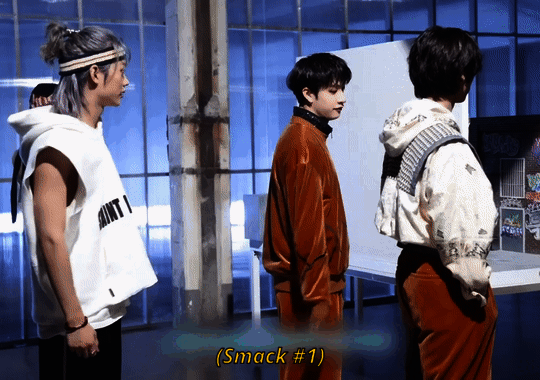

They’re powering him up
#stray kids#skz#S-CLASS M/V MAKING FILM#lee know#lee minho#sea breeze#bang chan#channie#chris#lee felix#lee yongbok#freckled boy
1K notes
·
View notes
Text





minchan | s-class m/v film making
#skz#stray kids#bang chan#lee know#lee minho#createskz#bystay#staysource#staycompany#usersun#usersa#userlau#usersemily#adriblr#meltracks#usertsu#dreamytag#melontrack#kiwitracks#zzarchive#you cant see it but mins wave in the last one i cried truly#MY BEANS
655 notes
·
View notes
Text


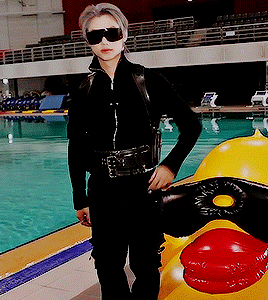











"특(S-Class)" M/V MAKING FILM - Felix ♡😎
#lee felix#lee yongbok#stray kids#skz#createskz#kpopedit#bystay#felixleenet#kiwitracks#melontrack#usersa#gifs#bitsforkitts#dancerachasource#ninisdarlings#amanda.tag#usergyu#staysource#heyale#people 
493 notes
·
View notes
Text


Felix in "특(S-Class) M/V MAKING FILM
#lee felix#felixleenet#stray kids#skzedit#createskz#staycompany#staysource#uservivi#userzaizai#usersa#melontrack#meltracks#vilmatrack#tusercelia#kpopco#jypartists#malegroupsnet#maleidolsedit#usersun#*
348 notes
·
View notes
Text
1/2
Stray Kids(스트레이 키즈) "특(S-Class)" M/V MAKING FILM | FELIX
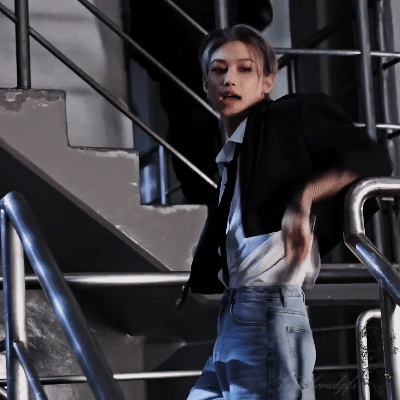
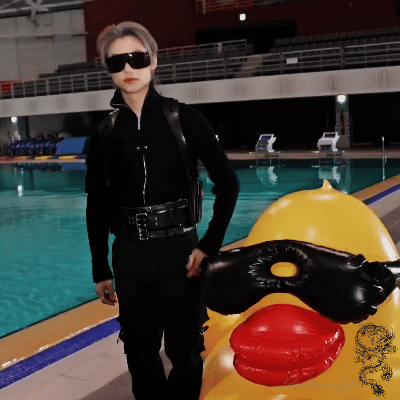

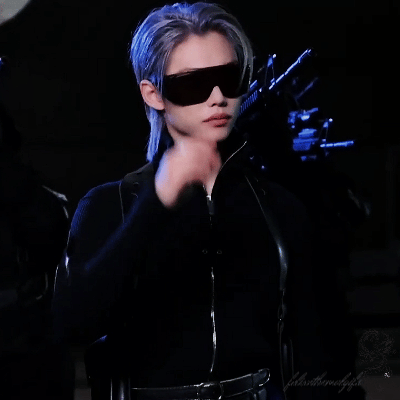





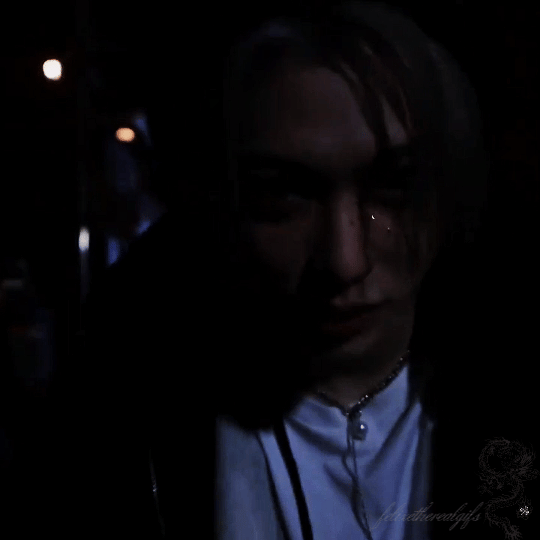
- DO NOT CROP/REMOVE WATERMARK
- DO NOT EXPECT MY GIF TO BE AESTHETIC
- FEEL FREE TO REPOST (WITH CREDIT GIVEN)
(Main account @felixethereal)
#Stray kids#felix#lee felix#lee yongbok#yongbok#Stray kids felix#skz felix#Stray kids felix gif#skz felix gif#Stray kids gifs#skz gifs#Kpop gif#kpop gifs#필릭스#스트레이키즈
66 notes
·
View notes
Text
Stray Kids(스트레이 키즈) "특(S-Class)" M/V MAKING FILM
youtube
#Stray kids#bang chan#lee know#changbin#hyunjin#han jisung#felix#seungmin#I.N#skz#특#S_Class#5_STAR#StrayKidsComeback#스트레이키즈#Youtube
11 notes
·
View notes
Text
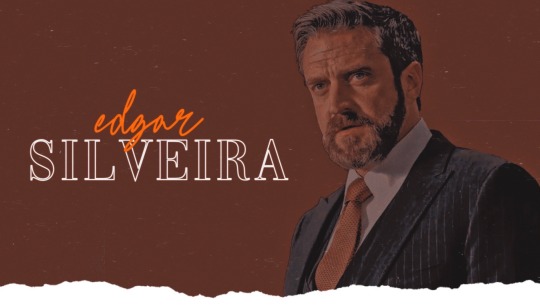
[raúl esparza - 50 - he/him] Introducing EDGAR SILVEIRA. Word on the street is they are an ASSISTANT DISTRICT ATTORNEY affiliated with THE DEMOCRATIC PARTY. Though they are RESERVED and BLUNT, they can also be RESILIENT and CARING. In the chaos of New York City, they’re sure to fit right in.
[sky - 23 - she/her - gmt - no triggers]
✧・゚— B A S I C S
— NAME: Edgar Daniel Francisco Silveira
— NICKNAME/S: Ed (by his family) ; Eddie (by others close to him)
— D.O.B.: 4th April 1973 (age 50)
— GENDER, PRONOUNS, SEXUALITY: Cis male, he/him, heterosexual
— HOMETOWN: New York City, NY, USA
— AFFILIATION: The Syndicate
— JOB POSITION: Assistant District Attorney
— EDUCATION: J.D. degree, LL.M, and S.J.D. from Harvard Law School
✧・゚— P E R S O N A L I T Y
— MBTI: ESFJ – the consul
— POSITIVE TRAITS: Hardworking, resilient, intelligent, observant, organised
— NEGATIVE TRAITS: Stern, reserved, argumentative, blunt, cynical
✧・゚— F A M I L Y
— MOTHER: Isabel Marie Silveira
— FATHER: Ruyan Isaac Francisco
— OLDER BROTHER: Frederico ‘Rico’ Isaac Francisco Silveira
— ‘SEEING EACH OTHER’: Anaïs Murad @anaismurad
✧・゚— A P P E A R A N C E
— FACECLAIM: Raúl Esparza
— EYE COLOUR: Blue
— HAIR COLOUR: Dark brown with greying patches and beard
— BUILD: Average
— HEIGHT: 6’
— SCARS/BIRTHMARKS: A 5cm scar on his left calf from a childhood accident
— BODY MODIFICATIONS: N/A
— CLOTHING

✧・゚— F A V O U R I T E S
— FOOD: Pizza (particularly pepperoni)
— DRINK: Bourbon
— BOOK: Slow Horses by Mick Herron
— FILM: Road to Perdition (2002)
— TV SHOW: Elementary (2012-2019)
— SEASON: Winter
— COLOUR: Red
✧・゚— B I O G R A P H Y
— Edgar was born on 4th April 1973 at 12:09am and is the youngest of two sons born to Ryan Francisco, a neurosurgeon, and his wife Isabel, a court stenographer. His brother Rico is older than him by 4 years and they were both taught to speak fluent Spanish by both of their parents. They lived in Queens.
— Edgar’s first love was baseball. He always played with his brother in their yard and their local park, often spending hours watching it on TV too. Their father took them to their first game when Edgar was seven and it remains to be his favourite memory. He also loves espionage novels and enjoys his downtime by reading them with tea and cookies.
— He grew up happy, although his father spent a lot of time out of the house due to his demanding job. Edgar looked up to Ryan, admiring his ambition, skill, compassion, and for a very brief time Edgar wanted to be a surgeon too (only after wanting to be a zookeeper, a scuba diver, a professional baseball player, and an astronaut, though). He was also close to his brother and mother: they would go on days out into the city together and spend time reading in the evenings amongst other things. This was when his love of literature began.
— Unlike his brother, Edgar was ambitious and always wanted to be challenged, especially at school. He was influenced by his mother and became interested in law because of her. He wanted to be the most successful prosecutor in NYC, so ensured that he studied hard to get through high school to focus solely on learning the law and making his parents proud. Meanwhile, Rico was getting into trouble with his teachers and also with the authorities. He’d been involved in the wrong crowds, getting involved in thefts and drug dealing, and brought shame to their parents. At the age of 19, Rico eventually left home in the dead of night and left a note to Edgar saying how sorry he was and that he’d be okay on his own. They wouldn’t see each other for another seven years and that meeting was a very brief one in the Christmas shopping crowds of lower Manhattan.
— Edgar graduated from Harvard at the top of his class. He had a four year long feud with a fellow student named Thomas and had vowed to beat him into getting top scores. They ended up being best friends and whilst Thomas ended up moving to Washington DC, they stayed in contact and see each other around the holidays.
— Edgar moved back home after graduating and after spending a couple of months helping his parents renovate their house he completed a strict study regime for his bar review before passing the bar exam first try. He then got his first job at the Queens District Attorney’s office as a clerk before working his way up to ADA. At the age of 32, he transferred from Queens to Manhattan, upping his workload and moving into a city apartment and has been there ever since. He still visits his parents often, though.
— He became an inadvertent affiliate of The Syndicate when he helped out his brother in certain dodgy dealings and in turn met Anaïs, who he tried not fall for but he did (and did so hard even if he won't admit it out loud to anyone other than Anaïs herself). In what little spare time he has, Edgar works for her father- Syndicate leader Petros, who made him realise that his talents could be put to good use in the world of crime with great rewards.
— Although ambitious and wanting to be a District Attorney (and even Attorney General), Edgar has been very comfortable in his ADA career and despite his experience he thinks he still has a way to go (little does he know that it’s just the self-doubt talking). He understands that it involves a lot of power and responsibility and doesn’t want to be watched too closely by government officials or the public considering his ties to crime.
✧・゚— W AN T E D C O N N E C T I O N S
— COLLEAGUES & ASSOCIATES: If your muse also works in law- especially in Manhattan- then it’s likely they’ve crossed paths with Edgar. Maybe they’re friends or maybe they’re rivals, but I’m up for discussing anything!
— OLDER BROTHER: Rico (or name UTP) is almost four years older than Edgar and has been involved in crime since his mid-teens. He’s an efficient thief and has evaded arrest on countless occasions. The two were very close when they were younger, but as soon as Rico left home things changed drastically and now that Edgar is lowkey involved in The Syndicate I’m also up to discussing anything in regards to how that might have changed their relationship (maybe it brought them back together or maybe there’s still a wedge between them)!
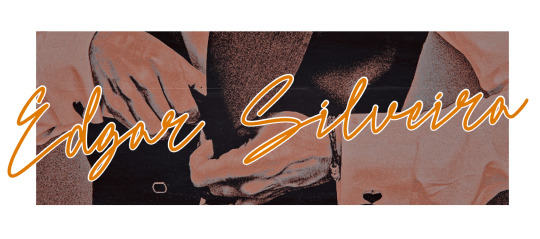
6 notes
·
View notes
Text

[billy crudup - 52 - he/him] Introducing LAURIE MORGANTHAL. Word on the street is they are an EDITOR & PUBLISHER & CEO, having been around for THIRTY-FOUR YEARS. Despite an otherwise clear record, sometimes they are known to engage with THE BROTHERHOOD's affairs. Though they are A WORKAHOLIC and RESERVED, they can also be CHARMING and ECCENTRIC. In the chaos of New York City, they're sure to fit right in.
[ sky - 23 - she/her - gmt - no triggers ]
tw: abuse, alcoholism ↴
✧・゚— B A S I C S
— NAME: Florian Henry Morganthal
— NICKNAME/S: Laurie (preferred name)
— D.O.B.: 24th August 1971 (age 52)
— GENDER, PRONOUNS, SEXUALITY: Cis male, he/him, bicurious
— HOMETOWN: Daytona Beach, Florida, USA
— AFFILIATION: Gang - The Brotherhood
— JOB POSITION: Editor & Publisher ; CEO of Empire State Books
— EDUCATION: Bachelors and Masters in English Literature from NYU
✧・゚— P E R S O N A L I T Y
— MBTI: INTP – the logician
— POSITIVE TRAITS: Eccentric, charming, creative, patient, observant
— NEGATIVE TRAITS: Meticulous, reserved, calculated, ambitious, a workaholic
✧・゚— F A M I L Y
— MOTHER: Nancy Alexandra Morganthal (née Harrison)
— FATHER: Mitchell Robert Morganthal
— EX-WIFE: Emily ‘Emmy’ Isabelle McGregor (formerly Morganthal)
✧・゚— A P P E A R A N C E
— FACECLAIM: Billy Crudup
— EYE COLOUR: Brown
— HAIR COLOUR: Black with flecks of grey at the temples
— BUILD: Average
— HEIGHT: 5’ 10”
— SCARS/BIRTHMARKS: A 7cm vertical scar on his left forearm from a tree climbing accident he had as a child
— BODY MODIFICATIONS: N/A
— CLOTHING:

✧・゚— F A V O U R I T E S
— FOOD: Apples (and apple related desserts)
— DRINK: Scotch whisky
— BOOK: The Hound of the Baskervilles by Arthur Conan Doyle
— FILM: Schindler’s List (1993)
— TV SHOW: Justified (2010-2015)
— SEASON: Autumn
— COLOUR: Blue
✧・゚— B I O G R A P H Y
— Laurie was born at 5:55pm on 24th August 1971 in Daytona Beach, FL, to Mitchell and Nancy Morganthal. He is their only child.
— As a young boy, Laurie spent many a day at the beach. He mainly went with his friends under the supervision of their parents and spent hours digging trenches in the sand and snorkelling in the sea. He always finds the beach relaxing and, as an adult, wishes he would go more often.
— Laurie grew up wanting to be a pilot like this father. For Halloween he would dress up as a captain and would get his father’s name tag to pin to the jacket. Despite idolising his father, Mitch was away for work for a lot of the time and Laurie’s mother grew paranoid. She began to think he was purposely staying away and having affairs. He always seemed to be making excuses and disappointed both Nancy and Laurie. He missed birthdays and anniversaries and didn’t seem to care very much. Laurie always felt conflicted: Mitch was his father but he was an absent father and figuring out how to feel about the situation was more confusing than anything else.
— Nancy would take out her anger and frustration about Mitch on Laurie. He endured shouting, screaming, and sobbing, and very rarely suffered physical abuse, but when he did he would hide under his bed sheets or in his wardrobe. He would often sneak around the house just so his mother didn’t see him and accidentally trigger a response in her. He never had any lasting physical scars, but the emotional ones were there for life.
— It was during this period of turmoil when Laurie found an escape in books. Thanks to his teacher at school, he was encouraged to read more and instead of spending time with other children he was tucked away in a corner somewhere with a book. He quickly went from falling behind in class to being the student with the highest grades in reading and writing.
— He was bullied for being a ‘nerd’ amongst other things and, against his nature, Laurie punched an older boy in the nose when he stole Laurie’s favourite book from him. Nobody physically messed with him again, but he was still called names and teased until he was 12.
— As he got older, Laurie’s relationship with his mother began to fail. She was drinking a lot, lost her job at a law firm, and was between shifts at local beachside restaurants and bars. At night, Laurie had to put himself to bed when his mother went out to work and had to cook his own meals (eventually being helped by a neighbour who took pity on both him and Nancy and volunteered to assist them).
— Nancy had every right to be paranoid, however, because Mitch was having affairs. She threw his stuff out for him to collect and changed the locks on the doors. He tried to apologise and make up for his so-called mistakes, but Nancy put her foot down. She stopped Mitch from seeing Laurie and kicked him out of their lives for good.
— When he was 9, Laurie’s parents divorced. Despite what she had said about Mitch in anger and hatred and in gratitude for getting rid of him, Nancy was always an emotional wreck. She often cried when she thought Laurie was asleep and would stay in bed most days. Laurie himself, when he wasn’t at school, took care of his mother in the best way he could as neither of them had any other family.
— Laurie didn’t see his father again until his 16th birthday. Mitch showed up to the house uninvited, but because Laurie wanted him there Nancy couldn’t object. Mitch’s gift to his son was the promise of a college education; he had set aside money to be used in another two years for Laurie to go to whatever university he wanted. They both knew by then that Laurie was no longer pursuing his childhood dream of being a pilot and Laurie told his father about his passion for literature. Mitch was supportive and was thrilled that Laurie wanted to go to NYU. Their relationship never fully healed from the strain it took when Laurie was a child, but the two were civil and Mitch never saw Nancy unless absolutely necessary.
— Laurie found popularity at NYU when he started his English Literature degree. He lived in halls of residence and gained many friends from across all different courses, but mainly in English courses. After promising himself not to drink after what happened with his mother, he was peer pressured into partying and consuming alcohol. He never became a heavy drinker, but sometimes found it difficult to stop drinking once he started, but this was usually only the case when he was particularly stressed or angry. He also went out with his first girlfriend during his first year.
— Following his graduation and after struggling to find a job for months (after taking shifts at a diner to earn money) Laurie landed an opportunity at a small publishing house in the city. He started from the bottom, essentially doing the mundane tasks before being being given a chance to do ‘real’ work. The senior members at this company trained him and taught him all the tricks of the trade and set him up for life. Today, that particular company no longer exists as it went bankrupt, but Laurie himself employs several of his old colleagues in his own successful company out of gratitude.
— Laurie lived with an old roommate at the time, which made it slightly easier to pay rent, and through that friend at a Christmas party he met his eventual wife, Emmy, who was starting out in her career as a cardiologist. They were mad for each other; they dated for two years and were engaged for a little over a year before getting married and taking their honeymoon in Italy.
— Emmy wanted a children and also to move closer to her parents in Austin, TX, but Laurie’s mind was fixated on his work. He was rarely out of the office and even when he was he was cooped up in his study at home. Their relationship broke quickly; Laurie and Emmy were always bickering and began to resent each other. Not two years into their marriage, they were divorced and Emmy returned to Texas. It wasn’t until months later that Laurie felt regret for what happened: he had a beautiful, talented, wonderful wife and he let that go without even realising how much of a mistake he made. But in true Laurie fashion, he distracted himself through his work and having flings with other women.
— Between the ages of 27 and 43, Laurie worked at several different publishers in the city and worked with many prestigious clients. He even did some work for a publishing company in London very briefly. He’d been considering setting up his own company for several years and now that he had made a name for himself he felt capable and confident enough to do. Thus began Empire State Publications: named after Laurie’s self-proclaimed home and set up in a Manhattan office building. It specialises in novels, but also publishes comics, magazines, and online works.
— He is the editor and publisher of Val Dupont’s @yarn-spinning hit books from the ‘Margot Sees Magic’ series. Laurie is trusted by Val to ensure their creative vision gets across in their books and that all mistakes made during the drafting process using Val’s speech-to-text technology are corrected. The two formed both a professional and personal relationship.
— Through Val, Laurie was roped into the dealings of the Brotherhood. He believed that his skills and personality would fit in and could be put to further use and found himself in communications, using his connections in various social circles and industries to pass along messages and intelligence.
— Laurie also never sees either of his parents anymore. He cut himself off from his mother after his divorce because of her continued toxicity and doesn’t know where his dad is. He’s glad that neither of them are around and that he can focus on his own life without having to worry about anyone else. It might seem selfish, but after years of putting up with pain and putting his mother first he can finally be free.
✧・゚— W A N T E D C O N N E C T I O N S
— EDITORIAL ASSISTANT: This muse would work closely with Laurie, organising his meetings and doing other admin jobs as well as supporting other editors. The two of them would more than likely end up as friends outside of the office too, but that can be UTP!
— AUTHORS & EDITORS: If your muse is a new author or a bestselling author, then they might have their book published and edited by Empire State Publications, or maybe by Laurie himself! Or perhaps they’re an editor who has been around since the company’s founding or are just starting their new job at ESP. Either way your muse would know Laurie in a professional setting.
— FLINGS: Laurie likes to frequent bars, usually higher-end ones, on his quieter evenings and will flirt if he’s in the mood. He’s incredibly charming and skilful in the art of persuasion, which can lead to sharing drinks and perhaps even an invitation back to his apartment. If your muse chooses to stay, then they can expect an interesting night ahead.
— AN OLD FLAME: if you, like me, would like explore Laurie’s softer side and explore his younger years, then your muse could be his very first girlfriend! They met at NYU and were mad for each other and fate had a cruel hand in splitting them up- the rest is up to you!

4 notes
·
View notes
Text
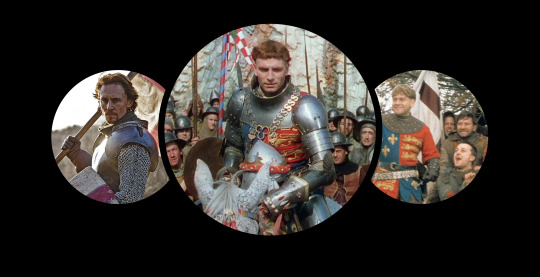
Sometimes Grad Studies Get Weird: The Film Historiography Edition
So, it's true that my grad school classes largely had nothing to do with Shakespeare. The plus about randomly taking a film historiography class because you don't have any other options is that you get to choose the topic of your final paper, and THAT is where you can sneak some Shakespeare into an otherwise non-Shakespeare class. This paper explored the film historiography of Henry V film adaptations, and has the distinction of having been turned down from a couple of journals. I hope y'all enjoy it more than my reviewers did!
Shakespeare Film Historiography: A Henry V Case Study
Shakespeare and the media have been intertwined since the first pirated quartos of the plays were printed. As media evolved, so did Shakespeare, until we arrive at the present, where the term “Shakespeare film” is cause for enormous scholarly and critical debate. Interestingly, what is frequently left as understood is the manner in which we record the history of Shakespeare films. Across a broad range of texts about Shakespeare film adaptations and the history of Shakespeare films, the same historiographic assumptions are reproduced time and again, with little thought into the problems or weaknesses of the methodology. Scholars such as Sarah Hatchuel, Kenneth S. Rothwell, Samuel Crowl, James M. Welsh, and Jack Jorgens all arrange their texts first by cinematic period, and then by director[i], which serves to lump together the body of Shakespeare film in a significantly different manner from the way the histories of the plays themselves are written.
When we look at the histories of the text of the Shakespeare plays, or even theatre performance histories, the texts are organized by play, occasionally making connections with other plays, but generally focusing on the evolution of a single play through time. Othello is perhaps the play with the weightiest performance history, at least in America; Stephen Marche briefly outlines the various historical trends that Othello performances went through.[ii] Harold Bloom also examines Shakespeare by play in Shakespeare: The Invention of the Human, his collection of essays on Shakespeare which incorporate scholarship and performance history in meditations of the plays.[iii] The most significant difference between film histories and text and/or performance histories of Shakespeare plays then is the privileging of the text over the director; textual and performance histories favor the former, film histories the latter. In effect, this method of recording Shakespeare film history divorces film adaptation from the wider history of the individual Shakespeare plays, creating a gap in Shakespeare history. This essay will examine the underlying assumptions that emerge from organizing Shakespeare film histories in this manner, as well as their strengths and weaknesses. Having surveyed the preexisting—and largely unspoken—model of Shakespeare film history, I will propose an alternative way of writing Shakespeare film history, using the three significant Henry V film adaptations of the twentieth and twenty-first centuries: Laurence Olivier’s Henry V (1944), Kenneth Branagh’s Henry V (1989) and Thea Sharrock’s The Hollow Crown: Henry V (2012).[iv] This revisionist history will ideally begin to bridge the gap in Shakespeare history between film and theatre performances and adaptations.
Shakespeare Film History So Far…
Shakespeare sound film history[v] in the twentieth century is generally divided into three approximate periods: 1935-1969, 1970-1988 and 1989-200.[vi] Each of these periods are then discussed in terms of the auteurs who were creating Shakespeare film adaptions at the time; the 1970s and 80s however are significant in that there were almost no Shakespeare films made during this time, and those few auteurs—Roman Polanski being possibly the most significant for his 1971 Macbeth[vii]—who did produce films in the early ‘70s or late ‘80s tend to get lumped in with either the first wave of Shakespeare films of the second.[viii] Additionally, some historians will further divide the auteurs by nationality.[ix] Generally, however, the first period of Shakespeare film history, often referred to as the ‘Golden Age’[x] focuses on the stage/Hollywood crossover auteurs, such as Orson Welles, Laurence Olivier, Franco Zeffirelli, and Joseph Mankiewicz.[xi] The focus on auteurs who crossed mediums—from stage to film—presents an interesting historical perspective on the relationship between theatre and cinema, as well as an implicit focus on adaptation theory. Adaptation theory in these histories not only means adaptation of the text, but also media adaptation—cinematic conventions allow plays to be realized in completely different ways from theatrical conventions, and the textual adaptations are only a small part of those histories. Much of the critical reception of and scholarly work on films from this era focuses on the amount of crossover between theatre and cinema; Francis Bordat noted that “Olivier seems to fear that there is not enough cinema in his theatre, while Mankiewicz is afraid there is not enough theatre in his cinema.”[xii] This observation points to one of the strengths of organizing Shakespeare film histories by auteurs of a given period: it demonstrates a broader trend in Shakespeare film. This strength also hides a historiographical rupture: as soon as the histories begin to talk about broad strokes in film history, the connections to the theatre are framed either in the context of the historical period, or in the background of the particular auteurs the historian is discussing. This framing removes Shakespeare film adaptations from the wider history of Shakespeare to a large degree, and subsumes Shakespeare films under cinema history. This subsumation began in the first half of the twentieth century, and for two decades, Shakespeare film almost completely disappeared;[xiii] the complete break from theatre and textual history comes with the third era of Shakespeare films, somewhat problematically christened ‘The Age of Branagh.’[xiv]
Scholars agree that the third period of Shakespeare films in the twentieth century began with the 1989 release of Kenneth Branagh’s Henry V. Historians continue to talk about Shakespeare auteurs in this period, who include (in addition to Branagh) Julie Taymor, Trevor Nunn, and Baz Luhrmann.[xv] In addition to the more straightforward adaptations—Shakespeare films which are set in the period of the plays and use Shakespeare’s original text—the Age of Branagh saw an explosion of adaptations which modernized the plots of Shakespeare films and used contemporary language. Some of the more well-known include Shakespeare in Love (1999), and 10 Things I Hate About You (1999).[xvi] This is the period where scholars and critics really stop discussing theatrical conventions on the screen and start seriously trying to define what a ‘Shakespeare Film’ is. Once again, however, the major focus of the scholars and critics is the directors who created these films, and how the films advance film history.
The discourse surrounding Age of Branagh films is, unsurprisingly, often focused on Branagh and his unique methods for putting Shakespeare on the commercial silver screen. With Branagh, however, there are also frequent—and frequently biting—comparisons to Golden age Shakespeare films. His Henry V film invites comparison to Olivier’s, although the specifics of that comparison will be discussed later. The significance of the comparison of Branagh to Golden Age auteurs however, brings me to perhaps the greatest weaknesses of the current historiological model for writing Shakespeare Histories: the focus on Auteur theory very closely resembles Great Man history, and the outright neglect of other forms of film history.
Laurence Olivier making off with the only color film camera available in Britain in the midst of WWII to shoot the battle of Agincourt in Ireland is a wonderful footnote in many of the retellings of how Olivier shot his film,[xvii] however the implications of this anecdote are rarely explored.[xviii] Olivier’s Henry V was the first Shakespeare film to be shot in color,[xix] but none of the histories take into account the factors behind the choice to shoot in color, nor the significance of a commercially successful color Shakespeare film; given that most Shakespeare films since Olivier have been shot in color (Joss Whedon’s Much Ado About Nothing (2012) being a notable example), the use of Technicolor technology was arguably significant. Because most film histories are focused on Olivier as an auteur, however, the focus is on the mis-en-scene and camera work rather than the technology behind the film. This convention of focusing on an auteur’s camera work continues into the present, and still manages to neglect technological aspects of Shakespeare film history.
Historical focus on an auteur’s choices of shots and camera angles is actually also neglected to a small degree because of how closely these auteur histories come to being Great Man of History pieces. Camerawork is primarily analyzed only when it is signatory of a particular director’s style; e.g. Olivier’s wide shots where the camera does not move for the entirety of a character’s monolog, which are highly theatrical in origin,[xx] and Branagh’s long, sweeping shots such as the four-minute tracking shot at the end of the battle of Agincourt,[xxi] or the final shot of Much Ado About Nothing (1993) which involved a Steadicam operator backing up into a crane rigged with a chair that then raised the cameraman up and above the actors.[xxii] Once again, these shots are significant technologically and stylistically, but are only brought up because they are part of a single auteur’s style. Great Man and auteur histories, particularly once they are comfortably known to reviewers, also bring up issues of discourse in reviews.
Likely the best example of a lowering of discourse in reviews because of the auteur status of the directors are the myriad of reviews that emerged after Branagh’s Henry V was released. Branagh’s film was inevitably going to be compared to Olivier’s, however the level of discourse around the reviews quickly descended from an open conversation regarding the merits of two adaptations to blatant name-calling. Reviews from trade magazines such as Variety, Screen International and Box Office, as well as reviews from The Times, and The London Times clearly split along the lines of the reviewer’s favorite auteur, and those lines frequently have little to do with the strengths or weaknesses of the films themselves. The Branagh proponents tend to simply refer to Branagh as “the New Olivier,”[xxiii] letting Branagh’s film ride on the popularity of Olivier’s name and reputation. Negative reactions to Branagh’s film have little to do with the grittiness of the portrayal of warfare, or the textual cuts or the quality of the acting, cinematography or production values; they are all about Branagh not being Olivier. Some choice negative reviews include:
Branagh's mouth is no cavern, but when the decibel level starts to soar, the camera cannot help making his face resemble a bad-tempered, grimacing pudding.[xxiv]
Classic Borscht-Belt definition of chutzpah: guy kills his parents then throws himself on the mercy of the court cause he’s an orphan. 1989 Update: a few months after Laurence Olivier’s death, Kenneth Branagh, a 27 year-old Brit, adapts, directs and stars in a film version of Shakespeare’s ‘Henry V.’[xxv]
Whether Kenneth Branagh is or isn’t, or might ever be Laurence Olivier has become one of the Great Bore issues of the day.[xxvi]
Because Shakespeare films are seen in terms of being auteur creations, reviews are freer to personally attack those auteurs, and in the case of Olivier and Branagh, choose a favorite auteur. This type of discourse is particularly prevalent in Shakespeare film criticism and reviews, not only because the films are seen as the works of auteurs, but because there are a finite number of Shakespeare plays, and the same eight plays tend to get adapted over and over again.
The Great Man theory of history closes out technological avenues of exploring Shakespeare film history, but it also closes out social, economic, adaptation, cultural and theatrical histories from consideration unless the great man in question was inextricably linked to another type of history. This is why the Golden Age histories tend to talk about the crossover between theatre and film, and it is also why many of the adaptations that are not period films using Shakespeare’s original language are not talked about in many of the histories. The significance of those films are not their directors as ‘Great Men’ of history, the significance is in the adaptation, and how we define ‘Shakespeare Films.’
It is arguable that Jack Jorgens’ taxonomy for defining Shakespeare films was anticipatory. Jorgens was writing in the late 1970s, during which time few Shakespeare films of any kind were being produced, and yet he laid out a taxonomy for defining Shakespeare films which remains highly influential, and seems to have predicted the explosion of different types of adaptations of Shakespeare that came about during the Age of Branagh.
Jorgens bases his taxonomy on the relative distance of a given film from the conventions of theatre,[xxvii] setting up three modes of filming—theatrical, realistic and filmic—[xxviii]which serve to describe the broad manner in which the camera moves. Augmenting the strictly filmic side of Shakespeare adaptation, Jorgens includes three additional categories: presentation, interpretation and adaptation.[xxix] Basically, these categories serve to track the distance of the dialog in Shakespeare films from the original text of the plays. Golden Age directors were more or less experimenting with film as a medium for Shakespeare, and so managed in their own ways to create films that adhere to many of the possible combinations of the Jorgens taxonomy; by the Age of Branagh, however, the push for Shakespeare adaptations that were accessible to students and popular audiences created a strain in scholarship. The question became “How far away from Shakespeare is too far?” Rothwell and Welsh both pick up different threads of this question. Rothwell argues that Jorgen’s taxonomy allows for too much overlap between modes and categories,[xxx] and tacitly positions himself away from Jorgens, in the traditional filmic time periods for Shakespeare adaptations rather organize his history by type of adaptation.
Welsh mentions Jorgens in the context of Rothwell’s position on Jorgens’ taxonomy, but makes it very clear that his essay is questioning the very idea of adaptations as a measure of distance from theatrical conventions. After systematically deconstructing the idea that adaptations like A Thousand Acres (1998) and 10 Things I Hate About You (1999) are even Shakespearean,[xxxi] Welsh argues for taking Hamlet at his word: we must hear a play.[xxxii] Welsh argues that Shakespeare lives in the verse, and in the poetry of the words that are spoken. Therefore, what exactly the camera is doing matters less than whether or not the language is intact. This argument for adaptation is particularly literary, as Welsh has no issues with traditional forms of translation. He goes so far as to argue,
So what if the language is not English? The Russian dramaturg Grigori Kozintsev directed a magnificent King Lear derived from the Russian Translation of Boris Pasternak. The original poetry will have been list, but the plot and characters are respectfully retained, and the translation was, after all, written by a highly respected national poet.[xxxiii]
Welsh’s issue is not with camerawork, as Jorgen is primarily concerned with, it is with maintaining the integrity of the text of the play. Juxtaposing Welsh and Jorgens highlights a significant tension between literary and film Shakespeare scholars: How sacred should the text be?[xxxiv] This debate is lengthy and ongoing, but it is important to touch on here, since our discussion of revising the history of the Henry V film adaptation will not cover it; extant film versions of Henry V typically use Shakespeare’s original text (albeit with some cuts for time).
Henry V: A Case Study for a Revisionist History
We have so far spent a great deal of time examining the assumptions and conventions of writing a Shakespeare film history by focusing on directors (who frequently also starred in their films) as auteurs. Given the number of flaws and potential for petty discourse, this history will examine what have been largely acknowledged by scholars as the three significant film adaptations of Henry V[xxxv] in the twentieth and twenty-first centuries, with a focus on adaptation theory—separated as much as is possible from directors as auteurs.
This methodology does cause some problems with the idea of divorcing the films from their directors; the vast majority of the reviews and criticism focus on Branagh and Olivier’s performances of their own texts. It may not be possible to completely divorce films from their directors; however, by creating distance between directors and their texts, it creates space to add to existing textual and/or performance histories, and allows us to track changes made to the text for socio-cultural and economic, even technological reasons rather than what amounts to a watered-down Great Man of History lens. This methodology also allows the discourse to rise above petty insults and personal star preferences, something which is absolutely rife within the reviews. In addition, this methodology allows a critical exploration of Sharrock’s 2012 film, filling a chronological gap in current film and Shakespeare history as well as re-envisioning the discourse around Henry V films.
In focusing on Olivier, Branagh and Sharrock’s Henry V film adaptations, I chose my definition of what constituted a Shakespeare film based on three factors: the availability of scholarly or cinematically significant film adaptations, where the adaptations fell on Jorgens’ taxonomy, and where the language adaptation falls in terms of Welsh’s classification of how the text was changed. In short, the Henry V adaptations focused on here are adaptations which use realistic interpretations of Shakespeare, albeit with a significant emphasis on the original Shakespeare text.[xxxvi]
Writing in his 2009 study of Henry’s rhetoric, Peter Parolin states, “Like God, the skilled rhetor creates new realities, even if those new realities exist only in other people’s minds.”[xxxvii] This speaks directly to Henry’s ability to use language to create worlds which only exist in other people’s minds, creating a legitimacy for himself in order to build his literal world. Henry V is a play about world-building, and the text reflects that intensely. An early example of language creating a world is Henry’s first speech to the French Ambassador [xxxviii]
In this particular, instance, Henry has every intention of going out and invading France, so the literal meaning behind this speech, while future oriented, is not a fabricated future. What is interesting to chart, however, is the use of the word “mock.” Henry is using the word in two forms, and while the noun form is used in such a way that modern audiences would recognize, few audience members would ever think of a castle as something they could “mock down”. The Oxford English Dictionary gives two definitions for the word “mock” current during Shakespeare’s lifetime. The first is the noun definition, “an act of mockery or derision,”[xxxix] which we can see in lines 281 and 285. The second definition states that when the word mock precedes a noun, it designates “a person who or thing which parodies, imitates, or deceptively resembles that which the noun properly denotes,”[xl] and it is this definition which applies to the other instances of use of the word in the rest of the passage.
Henry uses a word which directly connotes a level of falseness to refer to the human cost of an invasion of France. The implied falseness can work on two levels, depending on who the other characters in the scene perceive Henry to be talking about. The French messenger would most likely hear Henry talking about how easily the English army will capture the walls of French castles and how many women will be deprived of their husbands and sons. This scare tactic works to set up Henry’s later speech to the governor of Harfleur; Henry in effect tells the French that their castles and families will be brutally destroyed and conquered by the English because of the Dauphin’s insult. On a practical level, the French ambassador must be aware that England as a military power at this time should have no chance of successfully carrying out the threats Henry is making. But he is convinced as much as the rest of the English Lords in the room that France will fall because Henry is using the future tense to create a reality that even the messenger believes.
The French messenger isn’t the only one listening to this speech, however. Also listening are several English Lords who are about to be asked to help lead an army into France, which at this time is a huge military power. Henry speaks to them as well as the messenger. So while the messenger is hearing verbal doom rain down on his country, the English nobles are hearing that, in comparison to English castles, French castles are a mockery, and will be easily and gloriously conquered. The cost of English life will be minimal; the separation of the men from their families will only “mock” loss, because the English are going to annihilate the French. However, all of this language is in the future tense. The threats and the verbal mocks that Henry directs toward the French all nod their heads to a time in the future, ignoring the reality of the present, in which an attack on France is not a practical idea. Henry uses the ideal future he has created, in which the French castles fall like they’re made of clay, to override the thoughts of legalities in his councilor’s heads and instead focus on the glory and other benefits that come with a successful invasion of France.
This speech and the use of “mock” look to the future; the battles and the victories will come later, but the usage of “mock”, and how Henry tailors its use to apply differently to everyone in the room based on their national allegiances, is artful, and it also moves focus away from the past, and creates a vision of himself as a strong king. Between this speech and the perceived insult that sparked it, as well as Henry’s show of making sure he has a legitimate claim to the French throne before contriving a reason to invade, Henry has firmly fixed the sight of both the audience and the other characters on the future, as opposed to the present or the past. Because the world-building is so deeply embedded in the text, maintaining Shakespeare’s language in a film adaptation means that the world-building is inside the films. Cutting the text for screenplays however changes the worlds which are built, and the context in which the text is cut dictates the changes to the world-building.
Olivier’s Henry V was written during WWII, and was (and continues to be) regarded as a propaganda film.[xli] Disregarding the film’s dedication, which reads “To the Commandos and Airborne Troops of Great Britain, the spirit of whose ancestors it has been humbly attempted to recapture in some ensuing scenes, this film is dedicated,”[xlii] the real propagandizing of the film is in the way Henry’s monologs were cut. An England embroiled in a world war had no desire for textual complexities and in cutting the text for Olivier’s Henry V, the brutal speech to the governor of Harfluer is excluded,[xliii] Bardolph’s hanging is excluded,[xliv] the treachery of Henry’s Childhood friend Lord Scroop is excluded,[xlv] the murder of the English boys who travel with the army and the English murder of the French prisoners at Agincourt are excluded,[xlvi] and the epilogue telling of Henry’s death and England’s decline under Henry VI is excluded.[xlvii] The exclusion of anything overtly violent, or even potentially problematic in the text of Henry V leads to Olivier being able to build a cinematic world based on a clean, patriotic, almost portrait-like text. The ambiguity of murder during war, and of brutalities committed in the name of nationalism are cut from Olivier’s text and are therefore not present in the film. What is left then is a pageant revolving around an English king who is elevated nearly to the status of the mythical Arthur.
This simplification of Henry’s character is hidden to some degree by the artistic quality of the film. Henry V (1944) was the first Shakespeare film made in Technicolor, and many of the reviews tend to focus on how much the use of color film enhanced the viewing experience. [xlviii] Arguably, the use of this new technology also helped bring an archaic play which had already been oversimplified and edited to be overly jingoistic back into some kind of reality for contemporary viewers. The vast majority of them would have had a loved one fighting in Europe, and seeing a glorified version of ancient warfare in full color likely brought a sense of hope as well as patriotism.
The criticism and reception of Olivier’s film have been fairly polarized. Many critics tend to critique the film for its glorification of war, which is often attributed to the simplification of Henry’s character.[xlix] Despite this perception, however, Olivier’s Henry V would go on to be the first really commercially successful Shakespeare film,[l] earning a net profit of $1,100,000 across the US and Canada.[li] The commercial and cinematic success of this film positioned it in a place of significance in film history, and the choices of textual editing as well as cinematography made sure it remained a Shakespeare film.
The 1989 Henry V was made in a completely different social, cultural and historical context from the 1944 Henry V. Not only had Shakespeare films been absent from the world stage for almost two decades, but the world had changed after WWII, its aftermath, the Cold War and the Falklands War. War as a concept was no longer inherently glorious and uncomplicated, and what we have in Branagh’s film is an early “gritty reboot” of Henry V.
A large part of the complexity of Branagh’s film comes from the reintroduction of the problematic world-building aspects of the original text. Branagh’s film shows us the murder of the young boys, the hanging of Bardolph and the threats at Harfluer, which, if carried out, would have been seen as war crimes by contemporary audiences. By including the more brutal aspects of the textual world building, Branagh’s film practically insists on being compared to Olivier’s film. This is not to suggest comparing Branagh with Olivier, however. These two films function together historically to set up a larger question: is Henry V pro- or antiwar?
The question of warfare in Henry V has been addressed most famously by Norman Rabkin, who relates the play to the duck-rabbit drawing, arguing that “in Henry V, Shakespeare created a work whose ultimate power is precisely the fact that it points in two opposite directions, virtually daring us to choose one of the two opposed interpretations.”[lii] The duality present in the text of the play is exploited when the text in cut to be adapted into a screenplay, and yet both Jorgens and Welsh would agree that both Olivier and Branagh directed Shakespeare films. It is in this context of questions of warfare and language for world building and legitimizing that I would like to bring in Sharrock’s 2012 The Hollow Crown: Henry V.
Sharrock’s Henry V is the first Henry V to be made in a Post 9/11 world, and once again the definition of and ideas about war have changed. War in the twenty-first century is not something that the entirety of a first-world nation is actively involved in anymore, and the textual cuts as well as some of the choices of filming demonstrate this. Uniquely in the film history of Henry V, the 2012 film includes the murder of the French prisoners by the English. This murder is justified sub textually in the original Shakespeare by sheer force of numbers; the French already outnumbered the English and with additional French reinforcements on the way, the English stood an excellent chance of being literally backstabbed by men they thought were prisoners.[liii] In the original text, Henry gives the order, but the decision to show the executions or leave the act to conventions of Greek drama (e.g. the action happens offstage) has always been up to the director. Sharrock’s film shows Henry standing over a cluster of French prisoners drawing a longbow before cutting away,[liv] effectively combining a theatrical convention with film editing to use Shakespeare’s language to create a legitimacy for Henry. He gave the order, and then he himself executed the prisoners, forcing his words to become reality.
Another instance of using film conventions to support the world-building inherent in the language is during the St. Crispin’s Day speech. The reality of English society at the time of the battle of Agincourt was that it was strictly stratified with almost no opportunity for social mobility. The reality Henry is building within the minds of his men is that “there is no hierarchy on the battlefield, and [Henry] promises that participation in the fighting will literally create a social parity between king and common soldier.”[lv] The basic appeal to brotherhood and courage makes the St. Crispin’s Day speech a highly iconic one; previous films have had Henry deliver the speech to a full army in an attempt to fire them up to fight overwhelming odds; extras can number in the hundreds for this speech. Even theatrically, where you are often limited to eight or ten actors onstage, the physical presence of the audience breaks down the barrier of the proscenium and the audience becomes complicit, becomes Henry’s army who he must convince to fight this battle. Sharrock’s Henry delivers his speech to eight noblemen. The barrier between a film and its audience is not overcome by the world-building language in the same way the proscenium is, and because of this and the lack of an army where the class disparity is great, the world building effect of the language is undermined. Henry cannot appeal to the basic courage and brotherhood of men who are likely not going to be in the vanguard and are already of a social class with him, and so the language is not cut, but the film conventions used undermine it.
The undermining of the language of the St. Crispin’s Day speech really highlights how perceptions of war have changed since the Branagh and Olivier films. Sharrock’s response when asked if she was doing a pro- or antiwar Henry V was that she hoped she wasn’t doing either.[lvi] This really comes down to the perception that wars are now fought by governments and armies, not people. Henry performing the executions of the French prisoners and delivering the pre-battle speech to a small group of nobles may cut the inherent meaning of the rhetoric of the language to pieces, but it accurately reflects the way perceptions of war have changed. Sharrock is in effect deconstructing the meaning of the text to demonstrate historical changes of perception. If war is no longer something that a nation personally invests in, then pro- or antiwar is no longer the question; the question is one of leadership.
Sharrock’s Henry V was received differently than Branagh and Olivier’s films as well. There was no coverage of the film in the trade journals, and so my sources here are limited to newspaper reviews, to which I have added personal Blog reviews. The Hollow Crown: Henry V is the first Henry V film to be released in the age of the internet, and due to the nature of the Shakespeare film fan community, including such reviews seems appropriate—particularly given the lack of more academic sources.
The assumption that Shakespeare films are auteur works or star vehicles is alive and well and living in 2015; many of the reviews focus on star Tom Hiddleston’s performance, and the inevitable comparisons to Olivier and Branagh are present. Overall, news reviews damned Sharrock’s film with faint praise. The New York Times says of Hiddleston and the film, “He may not make anyone forget Kenneth Branagh’s 1989 film portrayal, just as this “Henry V,” as a whole, doesn’t outshine that one,”[lvii] while the LA Times review focuses on Hiddleston’s process as an actor, carefully avoiding judging any cinematic aspects of the film.[lviii] While the newspaper reviews pay little attention to the language adaptation aspects that this paper is so focused on, the personal blog reviews dig deep into the subject. Eric Minton, on Shakespearances.com, takes an in-depth look at how the text has been adapted for the screen, concluding that Sharrock seems more intent on “telling a good yarn”[lix] than adapting a literary text. He also examines what scenes and monolog were excluded from Sharrock’s film, and the implications of those deletions.
Conclusion
Textual adaptation for Shakespeare film screenplays is no easy task; screenwriters must tackle archaic language, references that no longer ring a bell for audiences, and the weight of four hundred years of literary and scholarly history. However, the consideration of these films as more than auteur works and star vehicles allows us to examine them within a broader history. As my case study with the Henry V films hopefully demonstrated, historical, social and cultural perceptions heavily influences the way the text is cut, and those influences lead to films that ultimately reflect social attitudes towards—in the case of Henry V specifically—war and the ways in which wars are fought. Moving away from auteur theories of history creates space for other avenues of history to be examined, and by following the history of a single play, allows scholars to stitch together a larger Shakespearean history: theatre performance history and film history, particularly as the two grow entwined together and feed off of one another. Shakespeare history needs to be rethought in order to reflect the ways in which seemingly disparate threads interact.
Notes
[i] Hatchuel, Sarah, Shakespeare from Stage to Screen (Cambridge: Cambridge UP, 2004), 1-32; Rothwell, Kenneth S, A History of Shakespeare on Screen: A Century of Film and Television (Cambridge: Cambridge UP, 2004); Crowl, Samuel, Shakespeare at the Cineplex (Athens: Ohio UP, 2003) 1-25; James M. Welsh, “What is a ‘Shakespeare Film’ Anyway?” The Journal of the Wooden O Symposium no. 5 (2005): 145-154; Jorgens, Jack, Shakespeare on Film (Bloomington: Indiana UP, 1977) 1-36.
[ii] Marche, Stephen, How Shakespeare Changed Everything (Toronto: Harper-Collins Publishers Ltd, 2011), 1-21.
[iii] Bloom, Harold, Shakespeare: The Invention of the Human (New York: Penguin Group, 1998).
[iv] King Henry V. Directed by Sir Laurence Olivier. Produced by Sir Laurence Olivier. Films For The Humanities & Sciences. Accessed December 15, 2015. http://search.alexanderstreet.com/view/work/657515; Henry V, Directed by Sir Kenneth Branagh (1989; Renaissance Films) DVD; The Hollow Crown: Henry V, Directed by Thea Sharrock (2012; Universal Studios) DVD
[v] Silent film history of Shakespeare is largely outside the purview of this essay; although Rothwell (1-26) and Hatchuel (12-13) briefly touch on the silent film era of Shakespeare, these films are by and large glossed over by scholars, likely because so much of the significance of Shakespeare comes through the spoken word. Jorgens (1) also feels that silent film was a disservice to Shakespeare
[vi] Hatchuel 19-21; Crowl 1-24; Rothwell 27-46; Crowl, Samuel, The Films of Kenneth Branagh (Westport: Greenwood Publishing Group, 2006) 9-13; Jackson, Russell, Shakespeare Films in the Making: Vision, Production and Reception (Cambridge: Cambridge UP, 2007) 1-2.
[vii] Hatchuel 23
[viii]Hatchuel 23-24
[ix]Because this essay is primarily focused on North American and British Shakespeare film history, examinations of Akira Kurosawa, Roman Polanski and Grigori Kozintsev (to name a few) will not be included. Rothwell (160-191) includes a chapter on non-Anglophone Shakespeare Film adaptations.
[x] Crowl 20
[xi] Hatchuel 20-23; Rothwell 27-69; Crowl 1
[xii] Quoted in Hatchuel 20-21
[xiii] Crowl 1
[xiv] Rothwell 234; Crowl 1
[xv] Crowl 2; Hatchuel 27; Rothwell 226-23
[xvi] Rothwell 248-274
[xvii] Brown, Geoff, “Larry’s Game is Beyond Our Ken; Kenneth Branagh’s Henry V,” The Times (London) 2 October 1989.
[xviii] Russell Jackson briefly clarifies the lack of Technicolor equipment in Britain at the time Olivier was filming, however the analytic focus remains on the mis-en-scene and cinematography. Jackson 89.
[xix] Hatchuel 20
[xx] Hatchuel 20
[xxi] Crowl 33
[xxii] Crowl 91-92
[xxiii] Wolf, Matt, “Top of the Town: Kenneth Branagh: Following in Olivier’s Footsteps,” Variety 365, no. 7 (1996): 25,32; Billington, Michael, “A New Olivier is Taking on ‘Henry V’ On the Screen,” The New York Times (New York) 8 January 1989
[xxiv] Brown, Geoff, “Larry’s Game is Beyond Our Ken; Kenneth Branagh’s Henry V,” The Times (London) 2 October 1989
[xxv] Levy, Shaun, “Reviews: Henry V,” Box Office 126, no. 1 (1990): 31
[xxvi] Moore, Oscar, “Review: Henry V,” Screen International 725, (1989): 6
[xxvii] Jorgens 7
[xxviii] Jorgens 7-11
[xxix] Jorgens 12
[xxx] Rothwell 18
[xxxi] Welsh 145-46
[xxxii] Welsh 150
[xxxiii] Welsh 150
[xxxiv] This debate is also currently going on within Literary Shakespeare scholarship, as the idea of Modern English translations of Shakespeare are being hotly debated since the Oregon Shakespeare Festival’s announcement of their commissioning Modern English translations of Shakespeare.
[xxxv] Henry V (1944), Henry V (1989) and The Hollow Crown: Henry V (2012)
[xxxvi] Hatchuel 16
[xxxvii] Parolin, Peter, "Figuring The King In Henry V: Political Rhetoric And The Limits Of Performance," Journal Of The Wooden O Symposium 9, (2009): 43-60
[xxxviii] Shakespeare, William. “Henry V”. The Riverside Shakespeare. 2nd Ed. G. Blakemore Evans, et al. Huffington: Boston, 1997. 979-1015. 1.2.280-288
[xxxix] "mock, n.1". OED Online. September 2012. Oxford University Press. 30 October 2012
[xl] "mock, adj., adv., and n.7". OED Online. September 2012. Oxford University Press. 30 October 2012
[xli] Davies, Anthony, “The Shakespeare Films of Laurence Olivier,” The Cambridge Companion to Shakespeare on Film, ed. Russell Jackson (Cambridge: Cambridge UP, 2007) 170-71
[xlii] Henry V, Olivier
[xliii] 3.3.1-43
[xliv] 3.4.97-113
[xlv] 2.2.65-182
[xlvi] 4.7.1-2; 4.6.36-39
[xlvii] 5.3.1-15
[xlviii] Davies 168-9
[xlix] Davies 170
[l] Crowl 20
[li] “Pictures: 'Henry V' Took $1,100,000 So Far in U.S. and Canada” Variety 166, no. 9 (1947): 4
[lii] Deats, Sarah Muson, “Rabbits and Ducks: Olivier, Branagh and Henry V,” Literature-Film Quarterly 20, no. 4 (1992): 284-293
[liii] 4.6.36-39
[liv] The Hollow Crown: Henry V
[lv] Parolin 52
[lvi] “Henry IV and Henry V with Jeremy Irons,” Shakespeare Uncovered, Directed by Richard Denton (2013; PBS Distribution) DVD
[lvii] Genzlingers, Neil, “Questions to Ask a King Before You are Beheaded,” The New York Times (New York) 19 September 2013
[lviii] King, Susan, “Tom Hiddleston Return to Shakespeare Roots in The Hollow Crown” LA Times (Los Angeles) 19 September 2013
[lix] Minton, Eric, “The Crown Comes Full Circle,” Shakespearances.com, 13 December 2013, http://www.shakespeareances.com/willpower/onscreen/Henry_V-PBS13.html
#henry v#shakespeare#shakespeare plays#shakespeare film#film studies#film history#film historiography
3 notes
·
View notes
Text
Fairly Ambiguous!
You might have heard of students playing truant, bunking classes and running off to watch movies. Have you come across an officer flicking through film magazines and watching movies in office time? Well, I must confess that I did it! And that too while discharging my official duties sincerely when I was posted as Managing Director, Kerala Film Development Corporation.
One day, Chief Conservator of Forests, late Shri V S Verghese, called me over intercom in Forest Headquarters where I was posted as Deputy Conservator of Forests (Development) with additional charge of DCF (Vigilance). He directed me to meet Shri M. M.Hassan, Minister for Culture in Congress government.
I had never met the minister earlier but when I called on him it was indicated that he was interested to post me on deputation as Managing Director of Film Development Corporation in Culture Department under him. Probably, reading the quizzical expressions on my face he put his cards on the table saying that the Corporation already had all the required experts in film making- camera man, award winning film directors, sound engineer, shooting crew, film developing staff in the laboratory and so on. No expertise regarding the craft of film making was expected from me. I was told that my job was only to streamline the administration.
Millions of people get attracted to the charm of films every year and I was no exception therefore I agreed to his suggestion immediately. Millions of people who do get attracted initially to the glamour also get embittered soon when they do not taste success even after a stiff struggle. I was also no exception. Once the government order was issued I took charge and learnt what was in store for me behind the grease and paint.
The Corporation had ten theatres all over Kerala for screening commercial films. We had a sprawling Chitranjali studio at Trivandrum where film shooting, film developing, editing, dubbing, and sound recording could happen under one roof. There were nearly three hundred employees- permanent and temporary. Yet, the main problem was that the government did not provide any funds for payment of salaries or wages and it was expected that Corporation would generate its own revenues as a commercial entity out of the assets that it possessed. Government only provided Rs. fifty lakhs every year for capital expenditure meant for building new assets but this fund could not be used for salaries and wages.
To my utter shock, all the bank accounts of the Corporation had been frozen by EPF (Employees’ Provident Fund) Commissioner under his statutory powers a week prior to my joining. Money could be deposited but not withdrawn from these accounts so that all dues to EPF Commissioner would be appropriated first and then only the surplus would be available to the Corporation for day to day expenditure.
For the past one year the Corporation was not generating enough revenues to meet the total salary commitment for the staff; only net salaries were being paid to them and that too intermittently. The statutory PF deduction from the salaries of all the staff were made on paper but never remitted to EPF Commissioner because physically the money was actually not there. This was a grave legal violation and it was the reason for freezing of bank accounts. Likewise, the life insurance premium deducted on paper from the salary of each employee was also not remitted to LIC causing the lapse of all the insurance policies.
It was a total financial mess. I found myself not only in the proverbial soup but in a boiling cauldron as I had become one among the Corporation employees after taking charge. Having temporarily severed my umbilical cord to the Forest Department because of deputation, my salary would also be paid only by the Corporation - provided there was money! However, no money could be withdrawn from the bone dry and frozen bank accounts. It felt like landing in a battle field with the hands tied behind my back.
After the initial intoxication of the new and high sounding job title had worn off, study of the organizational structure and revenue streams in the first few days revealed that the main source of income was the gate collection at theatres from ticket sales. Four film theatres at Calicut and Thrissur were real cash cows while other six were not doing well.
Charting films in theatres was a weekly exercise. Which commercial film to screen in which theatre and for how long? These were crucial business decisions because we were competing against privately owned theatres. Well, frankly speaking, even to suggest that we were competing against private players would be a bit of an exaggeration. I was reminded of the age old lesson- ‘government has no business to be in business!’ But when you are in a soup kept on a boil and your salary itself is at stake, you cannot find solace in old lessons. It was then that I started browsing through Malayalam film magazines to know in advance which films with superstars and good directors were under production so that they could be screened in our theatres immediately on release for higher revenues. It was time for ‘camera, action and cut’ in real life.
Few days of analysis and a patient ear helped in identifying one money guzzler pertaining to the operation costs of the Corporation. Most of the permanent employees wanted to be at Trivandrum and using political pressure they managed their postings either in Corporation head office or in Chitranjali studio making these places overstaffed and without any substantial work for them. In fact, few employees had some side business too that they nurtured in their spare time. More staff were actually required for manning the theatres elsewhere but the employees did not wish to be posted there so the theatres were actually being run by hiring daily wage temporary employees mounting the running cost and causing a big dent in the accounts of the Corporation.
Therefore, as a first step I drafted the transfer norms for shifting the employees out of Trivandrum and circulated to the employees’ unions for making the guidelines transparent. I knew that implementing the staff deployment was going to be a Herculean task considering that almost everybody had political connections in Kerala. Soon after the norms were accepted and approved in- house, I deployed many staff from Trivandrum to all the distant theatres thereby replacing the hired labour with the intention of curbing the expenditure. I believed in the traditional wisdom that a penny saved was a penny earned. I had to ensure that all transfers were according to the norms and kept a balance among all competing staff unions. I knew I had to live up to the dictum: ‘Caesar’s wife should always be above suspicion.’
There was a fall out to the policy of transfers that was, anyway, already anticipated. Lot of time was spent in discussions with the unions who had to conspicuously put up a ceremonial stiff opposition to the management against the transfers, despite realizing the dire need to do so, to keep their camp followers placated. A former Trivandrum MLA, representing the Left unions met me frequently in this regard arguing against few transfers but the discussions were always cordial over many cups of tea, presumably because he had lost the seat in the previous election and his party was in opposition in those days.
The transfers caused some resentment as the apple cart for few employees was upset. Fortunately, the financial health of the Corporation soon started showing “green shoots” (a term borrowed from Covid- battered -Indian economy -recovery as described by Ms. Nirmala Sitaraman recently) and thankfully all the employees started getting their full gross salaries in time. However, this was just not enough to prevent a faction of Congress backed union to approach the Culture Minister against me. By this time Shri Hassan, the minister who brought me in, had vacated the office.
The complaint was given a political flavor to make it more palatable to the minister and he was informed that I was a Left sympathizer and was guided in all decisions by the ex MLA of the Leftist party who spent a lot of time with me in office. This bogey can always be raised by disgruntled employees in any organization when there is nothing substantial to complain about and it carries traction with political masters too.
One day, Principal Secretary of Culture, Shri Bharat Bhushan, informed me over phone that the minister was not happy because few congress union people were frequently complaining against me and he was feeling compelled to shift me. However, I was very clear that ruthless decisions were required if the sinking ship was to be saved by plugging all the leaking holes. The time for soft pedaling was over. Moreover, I felt my personal fate and livelihood were also chained to the Corporation. Having soaked enough of communism in those many years of my stay in Kerala I could almost visualize Karl Marx waving a chuvappa kodi (red flag with hammer and sickle) and shouting hoarsely in my ears that I had nothing to lose but my chains in pursuing what I thought was right.
As instructed I met the minister in his chamber along with Shri Bharat Bhushan. The minister was absolutely candid and informed the Secretary that the Congress union members were hostile to the Managing Director because they felt discriminated while the Left party employees were favoured and that too, unpardonably, in the Congress regime!
Shri Bharat Bhushan had been MD in the same Corporation fifteen years prior to me and still had live contacts in the organization who met and briefed him regularly about the current affairs. To my relief the Secretary told the minister very politely, “Sir, according to my feedback the MD is not biased at all and is implementing all decisions only in favour of the organization. I can confidently say that he is very fair.”
Without missing a beat, the minister looked at my face with a deadpan expression and retorted, “Yes. He has a fair complexion!” Neither the Secretary nor I could make out whether the minister was being humorous or sarcastic. I was so stumped by his googly that unlike Sir Humphrey I could not even say, “Yes Minister.”
Epilogue:
Shri Bharat Bhushan retired as Chief Secretary of Kerala during my central deputation.
0 notes
Text
ICP - Bibliography 1 - D&AD
That New Design Smell (2020) ‘The Politics of Aesthetics’ Daniel Van Der Helden, Metahaven [online] Available from: https://thatnewdesignsmell.net/daniel-van-der-velden-explains-himself/. Accessed 20/01/2023.
Mulvey, L., 1975. Visual pleasure and narrative cinema. In Feminism and film theory (pp. 57-68). Routledge.
Van Zoonen, L., 1994. Feminist media studies (Vol. 9). Sage.
Butler, J., 2002. Gender trouble. routledge.
Big Think (2012) Judith Butler: Your Behavior Creates Your Gender [online] Available from: https://www.youtube.com/watch?v=Bo7o2LYATDc. Accessed 22/01/2023.
M. Holla, S., 2017, ‘Aesthetic objects on display: The objectification of fashion models as a situated practice’ [online]. Available at: https://journals.sagepub.com/doi/full/10.1177/1464700117734730 . Accessed: 23/01/2023.
Turbeville, D., 2011. Deborah Turbeville: The Fashion Pictures. Rizzoli International Publications.
Conekin, B., 2005. Lee Miller and the Limits of Post-war British Modernity: Feminity, Fashion, and the Problem of Biography.
Soft Skin Latex, 2021, Soft Skin Latex Vol. 1. Soft Skin Latex and Good Things
Hesmondhalgh, D., 2018. The cultural industries. Sage.
eBayUKofficial, 2022, Style Seekers. [online]. Available at: youtube.com/watch?v=gpmoalNGoV0 . Accessed 25/01/2023.
Yaksich, M. J. (2005) “Consuming Queer: The Commodification of Culture and its Effects on Social Acceptance”, Elements, 1(1).
Sewell, R. Busma, V. (2014) ‘New Blood Entry — Expect the Unexpected’ [online]. Available at: https://www.dandad.org/awards/new-blood/2014/national-trust-reconnect-our-relationship-with-nature-and-beauty/2449/expect-the-unexpected/. Accessed 29.01.2023.
Vinted (n.d.). Vinted | Sell and buy clothes, shoes and accessories [online]. Available from: https://www.vinted.co.uk/?utm_source=617894597504&utm_medium=139054618054&utm_campaign=12510247336&utm_content=kwd-298453551056&utm_source=617894597504&utm_medium=139054618054&utm_campaign=12510247336&utm_content=vinted&gclid=CjwKCAiAuOieBhAIEiwAgjCvctWxX_OyLBt4Ul3mAYbEghnZNAg2RL1p-IhpTqxGYDSK6_h4OxKlSxoCMy8QAvD_BwE Accessed 01.02.2023.
Depop (n.d) Available from: https://www.depop.com/ [online] Accessed: 01.02.2023
EbayUK (n.d) Available from: https://www.ebay.co.uk/ [online] Accessed: 01.02.2023
Depop (n.d) Depop x Tommy Hilfiger Available from: https://www.tiktok.com/@depop/video/7194926707047025926?is_from_webapp=1&sender_device=pc&web_id=7173807669324711429
Editors, O. (2023). 11 Gender Neutral Clothing Brands For Genderless Style [online]. Available from: https://www.thegoodtrade.com/features/sustainable-gender-neutral-clothing/. Accessed: 01.02.2023
Olderbrother (n.d.). Olderbrother [online]. Available from: https://olderbrother.us/ Accessed: 01.02.2023
M. Naziripour, The awfulness and the importance of the dress-up game. [online]. Available at: https://killscreen.com/previously/articles/awfulness-and-importance-dress-game/ . Kill Screen. Accessed: 02.02.2023.
Mitakos, A. (2020), ‘Here’s how to dress your Sims more stylishly’ [online] Available at: https://www.gq-magazine.co.uk/fashion/article/sims-4-style . Accessed 02.02.2023.
Pickering, J (2014) ‘Classy Looks and Classificatory Gazes: the fashioning of class on reality’, Available at: https://ualresearchonline.arts.ac.uk/id/eprint/9701/ , Intellect, University of the Arts London, LCF.
Bond, K. (2021), ‘It should be more celebratory now’: Bad wigs and rude robots – looking back at the world’s first ‘make-under’ show Snog Marry Avoid with the brain behind POD’. Available at: https://metro.co.uk/2021/04/12/snog-marry-avoid-looking-back-bbc-threes-make-under-masterpiece-14378428/ . Metro. Accessed: 03.02.2023
All Real, (2019), ’Danny GoGo Loves His Nicki Minaj Style’ Available at: https://www.youtube.com/watch?v=oZtlFsmzRUo . Accessed 03.02.2023.
Whitham, C. ‘STYLING EXPERIMENTATION’ [Instagram] Available at: https://www.instagram.com/011010.jpeg/ . Accessed 03.02.2023.
Fashion Gone Rogue, 2023, 'The List: Digital Fashion in Social Simulation Games’ [online]. Available at: https://www.fashiongonerogue.com/the-list-digital-fashion-in-social-simulation-games/. Accessed 02.02.2023.
Xeon, S. ‘Faceshopping (Official Video)’ , [YouTube], Available at: https://www.youtube.com/watch?v=es9-P1SOeHU Accessed: 03.02.2023
0 notes
Text
Multimedia Blog 2
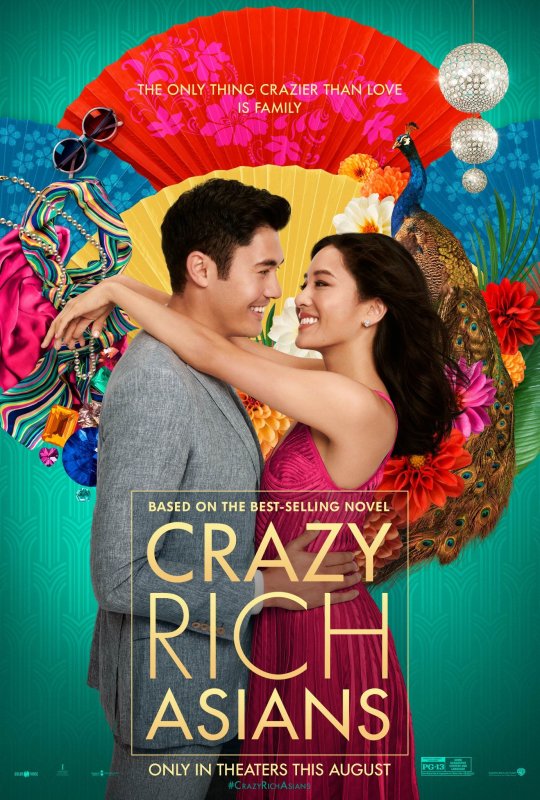
The film Crazy Rich Asians (2018) is about Rachel Chu, an American- born Chinese NYU game-theory professor, traveling with her boyfriend Nick Young to his hometown of Singapore for his best friend’s wedding. She is surprised to learn that his family is very wealthy. His mother and relatives were very disapproving of their relationship because Rachel is a Chinese-American and is not what Nick needs, which she thinks is to move back to Singapore to take over the family business and marry a girl from a rich family that prioritizes raising a family rather than focusing on her own career. Throughout the movie, there is a social conflict because of the difference between classes in society.
This film impacted the Asian-American community because it helped break the Asian stereotype typically seen in movies. The film broke these stereotypes by being the first mainstream and global romantic-comedy that features an all Asian cast. This is very similar to the impact Godzilla made on society. The creation of Godzilla impacted Asian-American art and displayed other works of art that displayed Asian-American culture. Godzilla was an inspiration, creating an alliance between various Asian artists showcasing their skills, working and supporting each other in unity. Crazy Rich Asians mirrors this by inspiring audiences and the film industry to break the asian stereotype and invokes the need to expand diversity in the media.
youtube
Beyond the predictable and limited examples of Asians portrayed on the big screen, Hollywood also ostracized Asian actors by casting Caucasian actors for Asian roles. An example of this is seen in Breakfast at Tiffany’s (1961) of Mickey Rooney’s portrayal of Mr. Yunioshi. The act of “whitewashing” in films is a practice that the entertainment industry has been practicing for years. Another recent film that practiced “yellowface” was Cloud Atlas (2012). It is noticed that every Korean character in the film is portrayed by a Caucasian actor in yellowface makeup.


The film Crazy Rich Asians influenced the Asian-American community immensely, being one of the highest grossing romantic comedies featuring a predominantly asian cast. The film breaks away from the asian stereotypes and racist portrayals the entertainment industry tends to practice and most significantly, highlights the need of diversity on the big screen.
Citations:
New York Film Academy. “Asian Representation in Film: The Impact of 'Crazy Rich Asians.'” New York Film Academy, 8 February 2019, https://www.nyfa.edu/student-resources/asian-representation-crazy-rich-asians/.
Eckhardt, Giana M. and Kerrigan, Finola (2019) "Crazy Rich Asians: A tale of immigration, globalization
and consumption in East Asia," Markets, Globalization & Development Review: Vol. 4: No. 3, Article 5.
DOI: 10.23860/MGDR-2019-04-03-05. https://digitalcommons.uri.edu/cgi/viewcontent.cgi?article=1106&context=mgdr
Brooks, Xan. “Cloud Atlas attacked over 'yellowface' make-up.” Sydney Morning Herald, 29 October 2012, https://www.smh.com.au/entertainment/movies/cloud-atlas-attacked-over-yellowface-makeup-20121029-28f01.html. Accessed 5 December 2022.
Zia, Helen, and Margo Machida. One Way Or Another: Asian American Art Now. Edited by Susette S. Min, et al., Asia Society with Yale University Press, 2006.
“Crazy Rich Asians- Opening Scene.” YouTube, https://www.youtube.com/watch?time_continue=6&v=2odn_xMxuXM&feature=emb_logo
Chu, John M., director. Crazy Rich Asians. Warner Bros. Pictures, 2018.
0 notes
Text
🌩 astrology observations 🌩
because someday i had to hop on the bandwagon after reading them for so long.
DISCLAIMER: these observations all come from personal experience, i am no professional astrologer, only take what resonates!

☁️ venus in the cancer-capricorn axis are so damn underrated. i swear, these people are the ultimate providers in relationships, and they'll always be there for you when you need it, true ride or die energy with these people.
☁️ i can never realize someone's a pisces rising until they show me their chart. pisces in general tends to be very flowy and adaptable, so it may be more natural for these risings to blend in with the crowd. h o w e v e r , their eyes might be a good giveaway. they tend to have an overall soft, watery look even if they're not blue (examples: billie eilish, michael jackson, zayn malik).
☁️ speaking of pisces placements, i've noticed most of the ones i know have shown deep interest in different artistic pursuits, specially songwriting, poetry, photography and film.
☁️ the same goes for leos but with them (and i say these as someone who attracts way too much leo energy) it's more related to performing arts. the ones i've seen more interested in writing also had a virgo mercury.
☁️ i've never seen two capricorns have a peaceful relationship with their parents, there's always one of them who prefers not to talk about it.
☁️ besides, i've seen that you're not "supposed" to get along with signs inconjunct (that make an angle of 150°, or are five signs away from yours) yours, since the inconjunction/quincunx is an aspect of total misunderstanding. however, i find signs like gemini and leo way too prominent on most of my friends' charts. maybe it's because i am a fire dominant as well so i tend to enjoy having fire and air energy all around me, but... i disagree with "textbook" astrology on this particular take. if leos and geminis bring me discord, i want more of it.
☁️ this is a popular one, but stop with the oversexualization of scorpio placements. the scorpio archetype has to do with many more things such as discoveries, taboo, mystery, emotional depth, secrets, the unknown, looking deep within ourselves, psychology. it is also related to sexuality, but... chill out on that aspect, please.
☁️ aquarius placements culture is saying: "i did x before it was popular". and i am directing this towards most of gen z because we all have at least one generational planet in there (could be uranus, neptune or both -i have both). if they're personal planets, of course the effect is even more intense.
☁️ the sagittarius-gemini axis gets the best ranter award, i swear i could hear these guys talk for hours.

☁️ can some people stop stereotyping sag and gemini venuses as cheaters? as a sag venus, i do tend to get bored easily, but that doesn't mean i'll cheat, i just need someone who can keep up with a great amount of energy and my random rants at 1am about useless topics.
☁️ look at the top students in your class, they probably have an earth or air mercury since those are the elements where mercury's the most comfortable in. that doesn't mean that if you have a water/fire mercury you're dumb, by the way, it's just that communication may not be as effective and striaghtforward, with cold hard facts.
☁️ people with aquarius in personal planets can go from "fashion icon" to "wtf were you thinking??" way too fast. but you guys, just like your sister sign leo, certainly do not go unnoticed.
☁️ i have come to the conclusion that the most intense energy belongs to fixed signs. i can feel those folks from a mile away. i've also been living in a fixed dominant family my whole life, so i have experience with them in general.
☁️ speaking of fixed signs, i'd like to add that not only tauruses are the monarchs of stubbornness, but the entire fixed mode can have that characteristic as well. of course, it depends of the entire chart, but when i encounter someone who's a fixed dominant and they disagree with me on something, even though i'm right, i just let them be for a while. they probably won't admit you were right and might act like it was their idea all along, though.
☁️ you may tend to enjoy music made by people who have personal placements landing on your fifth house. for example, i am an aries rising, so my 5H lands in leo, sign that many of my favorite artists have as their big three (rina sawayama, woodz, phoebe bridgers and jesse rutherford are leo suns; jungkook and heize are leo moons). also pay attention to the signs in your 8H and 12H along with your venus sign, your faves could have important placements in those.
☁️ fire risings all radiate main characte, given that the houses are all in the elements they are the most comortable in (the 1st is in a fire sign, the 2nd in earth, the 3rd in air, 4th in water, etc.). and in the case of aries risings, we have all our houses "in order".
☁️ people tend to stereotype aries placements as the ones with anger issues (when we're just being passionate, btw 🙄), but... have you guys seen a taurus? specifically a taurus mars? they'll raise hell if you cross the limits of their patience.
☁️ fire dominant culture is being told you're being "too much" at least once a week...
☁️ it's so fun to see my mom and i pick a destination to go to because you can literally see our venus signs in action. she, a taurus venus, is always talking about how much she wants to go somewhere she can be comfortable, in a resort with beautiful views to the coast. on the contrary there's me, a sagittarius venus, who would much rather get lost in a city, exploring and learning and moving all the time because that's how restless i am. i just can't imagine paying so much just to be locked up in a hotel, you know? i need to go places.
☁️ moon in the 6H people deserve an award for being the underrated mom friends we all need -they'll call you out on your bs right away, specially if they have strong aries energy.

thank you guys for reading! i might post more of these soon.
#astrology notes#astro notes#astrology#astrology observations#astro observations#zodiac signs#capricorn#leo#aquarius#sagittarius#gemini#cancer#virgo#aries#scorpio#pisces#libra#taurus#sun#moon#aries rising
532 notes
·
View notes
Text




Lee Know in "특(S-Class) M/V MAKING FILM
#lee know#leeknownet#stray kids#skzedit#createskz#staycompany#staysource#uservivi#userzaizai#usersa#melontrack#meltracks#vilmatrack#tusercelia#kpopco#malegroupsnet#maleidolsedit#usersun#linosource#*
323 notes
·
View notes
Text
2/2
Stray Kids(스트레이 키즈) "특(S-Class)" M/V MAKING FILM | FELIX




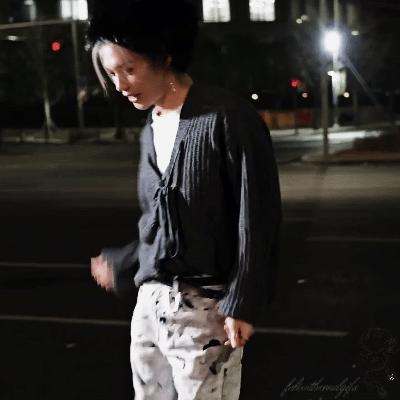

- DO NOT CROP/REMOVE WATERMARK
- DO NOT EXPECT MY GIF TO BE AESTHETIC
- FEEL FREE TO REPOST (WITH CREDIT GIVEN)
(Main account @felixethereal)
#Stray kids#felix#lee felix#lee yongbok#yongbok#Stray kids felix#skz felix#Stray kids felix gif#skz felix gif#Stray kids gifs#skz gifs#Kpop gif#kpop gifs#필릭스#스트레이키즈
31 notes
·
View notes
Text
「 FULL MASTERLIST 」
⊹ fluff, ✧ angst, ≛ nsfw, ** sensitive
find my retired masterlist here
find all concepts here
approximate total word count: 65.5k+
TOM HOLLAND
— what could be ⊹
tom starts to wonder if you really are better off as friends (1.3k)
— bridged ⊹ ✧
the bridge between friendship and something more is crossed in the middle of an airport terminal (1.4k)
— eighteen ⊹ ✧
you’re tired of feeling like the world silences you, but after an interview with sebastian and anthony, you start to wonder if maybe it’s your fault (1.9k) **
— the autocomplete interview ⊹
your favorite thing about interviews is how cuddly tom gets afterwards, almost like he’s a life size teddy bear (1.5k)
— magic in the parks ⊹
and maybe he was meant to find love in the happiest place on earth, or maybe they were just strangers in the same room at the same time (5k)
— daddy’s girl ⊹
and since the day she was born she’s been his biggest fan (1k)
— wrapped in red ✧ ⊹
first time parents go santa shopping for their baby (1.4k)
— home for the holidays ⊹ ✧
tom doesn’t think he’s going to make it home in time for your daughters first christmas (2.3k)
— love to call you mine ⊹
she’s got somebody else’s eyes but you love her as your own. or, tom has a daughter from a previous relationship, but she’s your little best friend with honey eyes (1.5k)
— influencer ⊹
you’re the youngest holland, and what you want, you get (1.4k)
— no pants with his love ⊹
tom never miss out on an opportunity to rave about just how much he adores you (1.5k)
— SERIES
— butterfly kingdom ⊹
periwinkles have blossomed for eighteen years between the old english kingdoms of florence and arkadence. two royal families— one of many sons, and one of a single daughter, have filled the acres of land with peace for centuries. now, the two kingdoms will become one. (3.4k)
one | two | three | four | five | six
[ find the sole masterlist here ]
HARRY STYLES
— amalfi coast ⊹
and maybe it was meant to be harry and his golden girl on the southern coast of italy, capturing magic before their lives changed forever, again (0.9k)
— lookout point ⊹
you’ve always been a fan of hallmark movies. you’ve made him watch them with you so many times, that when he chooses to propose, it’s in a snow sprinkled garden with a ring you’ve always dreamed of (3k)
— canyon moon ⊹
in which harry dedicates fine line to his and your daughter, then brings her on stage to close the show (1.4k)
— adore you ⊹
in which harry goes away for a few weeks and upon his highly anticipated arrival home your daughter doesn’t recognize him (1.7k)
— golden ⊹
in which harry doesn’t understand how he can possibly love such a small baby so painfully much (1.7k)
— seven tomorrow ⊹
you run into him at your campus starbucks not expecting to fall in love with his smile and the stupid holiday headband holding his hair back (1.5k)
— light up ⊹
in which harry hates that the two of you can’t enjoy a night on the town without the blinding lights of paparazzi (1.3k)
— ten little fingers, ten little toes ⊹
he proposed, you danced, and you created a family, all to one song, and now he’s singing it with your kids beside christmas lights and framed memories (1.2k)
— strawberries ⊹ ≛
you get carried away in front of a chocolate covered strawberry audience (1.1k)
— on your knees ≛
after being away for so long, you decide to test harry’s patience while he’s in a virtual business meeting (1.2k)
— falling ⊹ ✧
harry doesn’t want losing you to be his fault, but he can’t help the way he feels (0.6k)
— SERIES
— four ⊹
from a little british town to first class flights, you’ve always had a place in your heart for harry, and he’s had a place for you in his (0.2k)
one | two |
[ find the sole masterlist here ]
CHRIS EVANS
— don’t wake dodger ⊹ ✧
you settle down for a night in with the family, showing off some of your favorite christmas films after an eventful afternoon in the kitchen (1.2k)
— BLURBS
[ find the sole masterlist here ]
PETER PARKER
— heavy without you ✧
death is heavy on your mind this christmas season, but it’s even heavier on peters (1.8k) **
— you scare me ⊹ ✧
she had known him for so long, wasn’t it meant to be obvious that every night he snuck out of his bedroom to save the world? (1.7k)
[ find the sole masterlist here ]
BUCKY BARNES
— BLURBS
gentle (0.2k)
[ find the sole masterlist here ]
HARRISON OSTERFIELD
— COMING SOON
— BLURBS
[ find the sole masterlist here ]
#oliviiarodrigos complete masterlist#tom holland#harry styles#chris evans#peter parker#anakin skywalker
281 notes
·
View notes